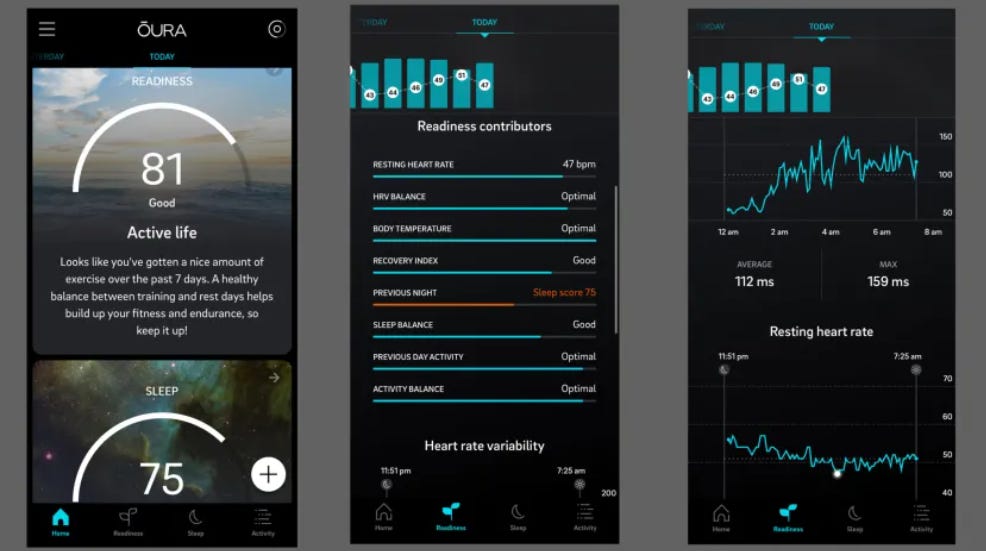Track. Your. Stats.
Isaac Newton was born on December 25th, 1642. Bloodletting was a standard of care. England had only stopped burning heretics at the stake 30 years prior (though they would continue to hang them until 1697). 90% of people lived on farms or in small rural communities.
By the time Newton was a professor at Cambridge, the literacy rate in England was a world leading 50%. If he wanted to borrow a book from Oxford’s library (the largest on Earth at the time) it would have taken at least 4 days from the time he sent his request (by letter) until the book was received (2 days of travel both ways). Information traveled slower than molasses.
Now think about the world today. All information is immediately accessible to anyone anywhere at any time. For free. We’ve gone from living in a world of information paucity to information overload.
The internet generally and social media in particular has made it easier than ever for information (and misinformation) to find and sustain an audience. Before the internet a town might have had a few crazy conspiracy theorists. They all might have found each other and gotten together on Friday nights with the nutters from a nearby town to debate the moon landing. But, the group would have been geographically limited to conspiracists within easy traveling distance. Now it’s almost a law of nature that a crazy idea will find its way to the minds of every person on Earth who would be susceptible to believing it (ahem: flat Earthers are still a thing?)
I wish it was just conspiracy theories we needed to worry about, but even people society is supposed to rely on for the straight truth are guilty of peddling false information. This is nothing new:
The modern equivalent of More Doctors Smoke Camels is stuff like this:
Cheerios are not part of a heart healthy diet. They have 12 grams of added sugars and 30 grams of carbs in a single serving. And, let’s face it, no one only eats a single serving of cereal - which I can personally down in a few bites.
Check this list of recipes out from the Cheerios website:
Heart-Healthy Recipes? Are you fracking (Battlestar Galactica reference) kidding me? The Banana Cream Pie has 47 grams of carbs per serving.
This nonsense is peddled by the same folks who think the best way to handle people with obesity and T2 diabetes is through caloric restriction and exercise (“if you want to lose weight, just eat a small, heart-healthy bowl of cheerios and then go for a 5 mile run - yay calorie neutral!”).
Obviously this doesn’t work because over 40% of Americans have obesity. The willpower and sheer misery you have to go through to lose weight this way should obviously qualify this method as disproven once and for all.
We know for a fact that lasting weight loss and getting off insulin is best done by changing the mix of macronutrient intake, but that won’t stop folks like Cheerios from marketing their bullsh*t.
Here’s the good news. You no longer have to rely on your ability to filter through the incalculable quantity of disorganized and often false information to figure out what’s true (and appropriate for your specific biochemistry). Just start tracking your stats!
A continuous glucose monitor (CGM) can cost as little as $40 for a sensor that will last two weeks. That’s still too much for many people to afford on an ongoing basis, but you really only need to wear it for a month or so to get a good feel for how your body reacts to everything you put in it. And, if you have diabetes, insurance has started to cover them. A CGM comes with an app that automatically and in near real time (15 minute delay) reports your glucose (blood sugar) levels. The data output looks like this:
If you are wearing a CGM you can see for yourself the impact eating different foods has on your glucose. One of the things that shocked me when I first put on a CGM was how much my glucose spiked after eating the supposedly super healthy Alyssa’s cookies - it was crazy! Rather than counting on food companies like General Mills to tell you what’s healthy - just see what the food you eat is doing to your glucose levels.
Even better, you can start connecting how you feel physically and mentally to what you eat with data. Do you feel tired after a glucose spike? Do you have more energy throughout the day if your glucose never leaves the target zone? Do you sleep better at night if you avoid glucose spikes late in the day? How long does it take for your glucose to get back in the target zone after a spike? There’s a nifty little button that lets you take notes (e.g. feeling sleepy/moody) which are then automagically connected to your glucose pattern. One final point, and this comes from personal experience, it is simply far easier to stick with something (e.g. a low carb lifestyle) when you have immediate feedback staring you in the face. It’s one thing to eat a bag of chips without a CGM on knowing that no one is going to bark at you. Besides, how bad could a bag of chips really be? Well, if you’re wearing a CGM you’re going to see exactly how big of a disaster a bag of chips is to glucose levels, and, the giant Mount Everest spike pattern that takes you out of your target zone will serve as a very visual BARK.
Now, let’s talk about sleep. Sleep has a bigger impact on your energy than just about anything else. Good sleep makes you live longer, lessens the odds of you getting Alzheimer’s, and works wonders for maintaining mental wellness. Seems like it would be an important thing to make sure you were getting right - doesn’t it?
Sleep is impacted by the obvious things like caffeine intake and stress, but did you know it’s also impacted by how many calories you consume close to bed (and what macronutrients those calories consist of)? Some people can eat a big meal within two hours of bed and be fine. Others (like me) notice a difference in sleep quality even eating a big meal 3 hours before bed. Some people can stop drinking coffee before noon and sleep just fine. Others (like me) notice a difference drinking caffeine after 9am. Reading infinite amounts of blog posts and opinions on the best paths to wonderful, dreamy sleep will not do you as much good as putting on a sleep tracking device and learning about your unique situation. Here’s a sample dashboard:
If you are sleeping well you will feel more energetic the next day. You will be less likely to experience brain fog. Your memory will improve and you might even stop misplacing your keys as much. One of the things that surprised me was how even a single glass of wine will raise my average body temperature and resting heart rate at night if consumed within two hours of bed. Pretty crazy right - just one glass! The Oura ring tracks:
Resting heart rate (lower is better)
Heart Rate Variability (higher is better)
Sleeping body temperature (larger drop is better)
Oxygen levels (want to see them remain consistent, otherwise you might have sleep apnea or something else obstructing you at night)
Restfulness (mostly how much you turn over, less is better)
How long it takes you to go to bed (too fast means you’re too tired and should have gone to bed sooner, too long means you might be under stress or physically exhausted even though your body isn’t ready for sleep yet, so this one is usually something you’d like to see between 5 and 15 minutes)
How consistent your sleep/wake up times are from day to day
Efficiency (what percent of the time you spend from first lying down to waking up that you are actually sleeping; rolling over and going to the bathroom at night will both lower your efficiency)
REM vs. Deep vs. Light sleep stages (each has their own purpose and is important!)
You will be amazed to find that what you eat, when you eat it; what you drink and when you drink it; what you do during the day and before bed - literally all of it will have an impact on your sleep. You are unique and how everything impacts your sleep will be unique to you. The information that will be most valuable to you won’t be found in the ocean of online papers and pages - but in the data you generate!
If an Oura ring is out of your price range there are a variety of smart watches and bands which do pretty much the same thing!
Don’t get lost in the jungle of information out there - you’ll be better off spending time getting familiar with the unique person you are - and the way you do that is to track your STATS!









